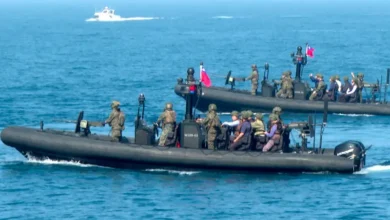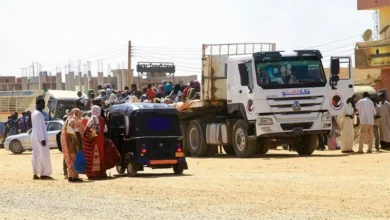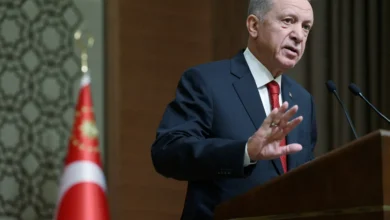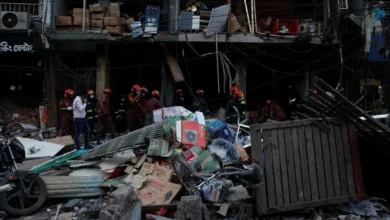Biden administration doubles down on resumption of US weapons sales to Saudi Arabia

The US on Friday reaffirmed its decision to resume offensive weapons sales to Saudi Arabia as a result of improvised ties and an about-face on a decision in the early days of the Biden administration to target Gulf countries with foreign policy moves.
The Biden administration froze weapons sales to Riyadh as well as other Gulf countries for so-called human rights violations and other accusations made as a result of the yearslong war in Yemen pitting the internationally recognized government against the Iran-backed Houthis.
A senior Biden administration official said Friday that part of Washington’s policy of freezing the sale of certain classes of offensive weapons “while maintaining sales of systems Saudi Arabia required to defend itself from attack” was part of the policy to try to end the war.
“We always made clear that the freeze on certain classes of weapons was conditional and based on Saudi Arabia’s policy towards Yemen,” the official said in a statement to Al Arabiya English.
Following UN-brokered peace talks between the Yemeni government and the Houthis, cross-border Houthi attacks into Saudi Arabia largely stopped. Saudi Arabia had been working to reduce civilian casualties in military operations on Houthi targets for years, including before the Biden administration took office.
“So, the Saudis have met their end of the deal, and we are prepared to meet ours, returning these cases regular order through appropriate Congressional notification and consultation,” the senior administration official said.
“Through this period, Saudi Arabia has remained a close strategic partner of the United States, and we look forward to further enhancing that partnership.”
Al Arabiya English previously reported on the move to resume weapons sales to Saudi Arabia, citing sources familiar with the matter, which will include “significant” arms.
On Friday, a State Department official said the department was lifting its suspension on certain transfers of air-to-ground munitions to Saudi Arabia. The official said the US would consider new transfers on a case-by-case basis consistent with the Conventional Arms Transfer Policy.
“Saudi Arabia remains a critical security partner for the United States, particularly at a time of high regional instability,” the official said.
Change of US attitude toward Houthis
After being criticized by many for softening the US stance on the Houthis, the Biden administration, in recent months, reneged on moves to designate the Yemeni militia as a terror organization.
“The Houthis, at the same time, have proven once again to be a group intent on using terror to advance its agenda, including through targeting civilian shipping in the Red Sea,” said the administration official.
The Houthis began targeting commercial vessels and ships in November following the Israeli bombardment of Gaza in response to the Oct. 7 Hamas attack on Israel.
After the US military deployed assets to protect commercial ships and help fend off Houthi attacks, the Houthis began lobbing missiles, drones and rockets at American forces.
This included the use of anti-ship ballistic missiles for the first time in history. The US also propped up an international coalition dubbed “Operation Prosperity Guardian” to respond and deter Houthi attacks. The alliance failed to garner the public support the US expected, but officials argue it has been effective.
The Houthis have not stopped their attacks and, for the first time, successfully attacked Tel Aviv last month. The Houthis, like other Iran-backed militias and proxies in the region, have said they are targeting ships linked to Israel in support of Palestinians and say they will stop when a ceasefire is reached in Gaza.
Despite opposing Arab-led Coalition strikes on the Houthis a few years ago, the Biden administration has now been carrying out unilateral and coalition strikes on Houthi targets.
The senior administration official said this effort is ongoing and will continue. Citing the re-designation of the Houthis as Specially Designated Global Terrorists (SDGT) and other sanctions, the official said: “This pressure will continue to build over the coming weeks.”









